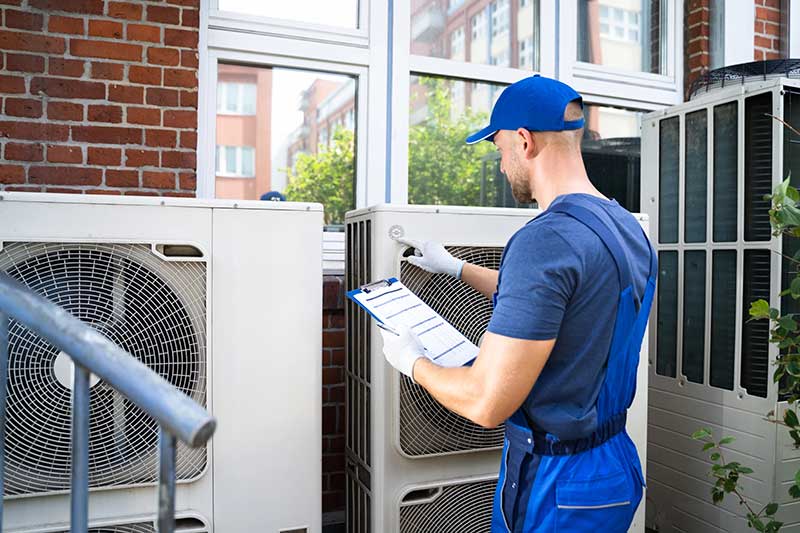The heating, ventilation, and air conditioning (HVAC) industry is rapidly evolving, and professionals in this field are expected to stay updated with the latest technologies, safety standards, and installation practices. As demand for energy-efficient systems continues to grow, so does the need for highly skilled HVAC technicians. Whether you’re just starting your career or seeking advanced training, understanding the fundamentals and staying ahead of industry trends is essential for long-term success.
In today’s digital era, acquiring the right skills is easier than ever. Instead of relying solely on traditional classroom settings, many aspiring professionals now prefer flexible, structured, and accessible training programs that provide both theoretical knowledge and practical insights.
Why HVAC Education Is More Important Than Ever
The HVAC industry has become more competitive and technology-driven over the past decade. With increasing government regulations, energy efficiency requirements, and the introduction of smart climate control systems, technicians must develop specialized skills to remain relevant.
A well-structured HVAC education helps you:
- Understand system installation, troubleshooting, and maintenance techniques
- Stay updated on industry codes and safety practices
- Learn about eco-friendly and energy-efficient technologies
- Improve customer service and problem-solving skills
- Prepare for certifications and licensing exams
By investing in your knowledge, you can secure better job opportunities, improve your earning potential, and become a trusted expert in the field.
The Shift Toward Online Learning
Traditionally, HVAC training required attending in-person classes, which often made it challenging for working professionals to manage both their jobs and studies. However, the rise of online education platforms has transformed the learning experience, offering a flexible and effective alternative.
Online learning allows you to:
- Study at your own pace and on your own schedule
- Access high-quality instructional videos and resources anytime
- Learn from industry experts without geographical limitations
- Revisit modules whenever you need to refresh your knowledge
- Balance work, personal life, and skill development
This accessibility makes online training an ideal choice for beginners, experienced professionals, and even business owners looking to upskill their workforce.
Building a Strong Foundation in HVAC
For anyone entering the HVAC industry, the foundation begins with understanding the core concepts:
- Thermodynamics and Heat Transfer – Learning how energy moves through different systems
- Refrigeration Cycles – Understanding cooling processes and system efficiency
- Airflow Management – Balancing ventilation for comfort and safety
- Electrical Fundamentals – Wiring, controls, and safety protocols
- System Troubleshooting – Identifying and fixing performance issues effectively
By mastering these areas, you create a solid base that allows you to advance into more complex concepts and techniques as your career grows.
The Value of Structured HVAC Training
While there are countless resources available online, not all provide the same quality of information. To develop real expertise, it’s crucial to enroll in a program that offers comprehensive training, practical examples, and updated knowledge that matches current industry demands.
One of the most effective ways to gain the right skills is through professional online HVAC education. This type of structured learning ensures you’re following a proven curriculum designed to teach both fundamental and advanced concepts in a clear, engaging way. It helps you avoid outdated practices and equips you with the techniques that employers and clients value most.
Advancing Your HVAC Career
Completing quality HVAC education is only the first step — applying your skills in real-world scenarios is where true growth happens. Here are a few tips for advancing your career:
- Earn Industry Certifications – Credentials like NATE or EPA certifications increase your credibility and earning potential.
- Specialize in High-Demand Areas – Focus on modern solutions like smart thermostats, solar-powered systems, and energy-efficient upgrades.
- Stay Updated on Industry Trends – Regularly engage with new technologies, tools, and practices.
- Build Strong Customer Relationships – Technical knowledge is essential, but communication and service quality can set you apart.
The HVAC industry offers limitless opportunities for those who commit to lifelong learning and skill development.
Final Thoughts
The demand for skilled HVAC professionals continues to rise as technology reshapes the industry. To thrive in this competitive field, investing in the right training is essential. By choosing a structured learning path, gaining hands-on experience, and staying up to date with the latest advancements, you can position yourself as a knowledgeable and in-demand expert.
Whether you’re entering the field or looking to advance your career, building a strong educational foundation is the key to unlocking better opportunities and long-term success.





























